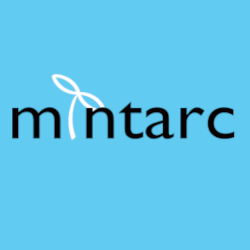Free and Open Source Software (en): Difference between revisions
Created page with "Free and Open Source Software (FOSS) refers to software that can be used free of charge and whose source code can be viewed, modified, and distributed by anyone. This term combines two important concepts: "Free Software" (emphasizing user freedom) and "Open Source Software" (focusing on collaborative development). Characteristics of FOSS Free: Can be used without monetary cost Freedom: Use: Can be used for any purpose Modify: Can be altered to su..." |
No edit summary |
||
| Line 1: | Line 1: | ||
Free and Open Source Software (FOSS) refers to software that can be used free of charge and whose source code can be viewed, modified, and distributed by anyone. This term combines two important concepts: "Free Software" (emphasizing user freedom) and "Open Source Software" (focusing on collaborative development). | '''Free and Open Source Software (FOSS)''' refers to software that can be used free of charge and whose source code can be viewed, modified, and distributed by anyone. This term combines two important concepts: "Free Software" (emphasizing user freedom) and "Open Source Software" (focusing on collaborative development). | ||
Characteristics of FOSS | Characteristics of FOSS | ||
*Free: Can be used without monetary cost | |||
*Freedom: | |||
**Use: Can be used for any purpose | |||
**Modify: Can be altered to suit individual needs | |||
**Redistribute: Can be freely shared with others | |||
*Open Source: The software's blueprint (source code) is publicly available, allowing anyone to inspect or modify it | |||
Importance of FOSS | '''Importance of FOSS''' | ||
FOSS empowers individuals and organizations to control the software they use. Unlike proprietary software with restricted code and usage, FOSS promotes transparency, collaboration, and innovation. | FOSS empowers individuals and organizations to control the software they use. Unlike proprietary software with restricted code and usage, FOSS promotes transparency, collaboration, and innovation. | ||
Benefits of FOSS | Benefits of FOSS | ||
*Cost-effective: Many FOSS applications can be downloaded and used for free | |||
*Customizable: Users can adapt the software to specific requirements | |||
*Secure and transparent: Open source code allows for peer review, making it easier to identify vulnerabilities | |||
*Strong community support: Many FOSS projects have active communities that provide assistance and contribute to improvements | |||
FOSS has the potential to fundamentally change how we use software, enabling a more free and creative society. If you'd like to learn more about FOSS, please feel free to ask any questions. | FOSS has the potential to fundamentally change how we use software, enabling a more free and creative society. If you'd like to learn more about FOSS, please feel free to ask any questions. | ||
Latest revision as of 01:36, 29 January 2025
Free and Open Source Software (FOSS) refers to software that can be used free of charge and whose source code can be viewed, modified, and distributed by anyone. This term combines two important concepts: "Free Software" (emphasizing user freedom) and "Open Source Software" (focusing on collaborative development). Characteristics of FOSS
- Free: Can be used without monetary cost
- Freedom:
- Use: Can be used for any purpose
- Modify: Can be altered to suit individual needs
- Redistribute: Can be freely shared with others
- Open Source: The software's blueprint (source code) is publicly available, allowing anyone to inspect or modify it
Importance of FOSS FOSS empowers individuals and organizations to control the software they use. Unlike proprietary software with restricted code and usage, FOSS promotes transparency, collaboration, and innovation. Benefits of FOSS
- Cost-effective: Many FOSS applications can be downloaded and used for free
- Customizable: Users can adapt the software to specific requirements
- Secure and transparent: Open source code allows for peer review, making it easier to identify vulnerabilities
- Strong community support: Many FOSS projects have active communities that provide assistance and contribute to improvements
FOSS has the potential to fundamentally change how we use software, enabling a more free and creative society. If you'd like to learn more about FOSS, please feel free to ask any questions.
